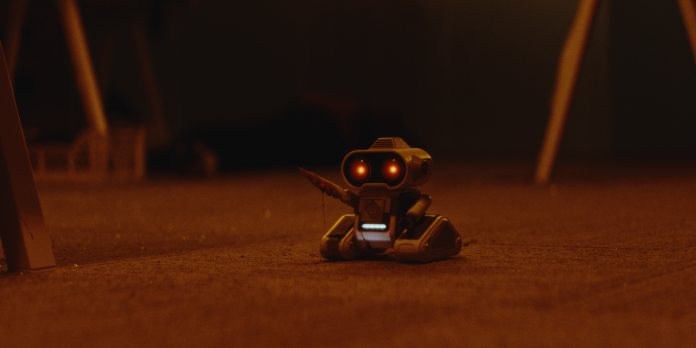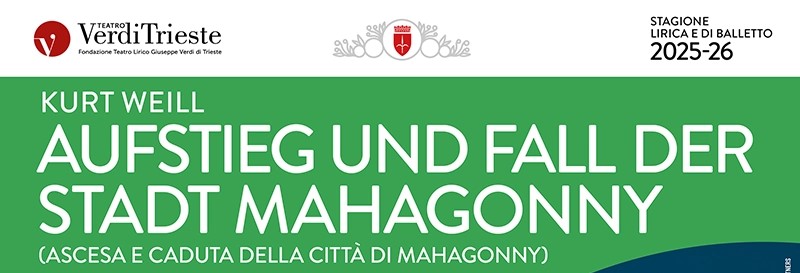by InTrieste
The 25th edition of the Trieste Science+Fiction Festival continued on Wednesday with a full slate of film premieres, talks, and cultural events exploring the intersection of science and imagination. The festival, running through November 2, has once again transformed Trieste into a hub for science fiction enthusiasts, filmmakers, and thinkers reflecting on the future of humanity and technology.
The day began at Teatro Rossetti with the Italian premiere of Marshmallow (Canada, 2025), directed by Daniel DelPurgatorio. The film follows Morgan, a shy boy whose discovery of a local legend about a doctor who turns children into monsters leads him and his friends down a dark and unexpected path. At Teatro Miela, audiences were treated to the Fantastic Shorts program, an annual showcase of short films from around the world.
Later in the afternoon, Transcending Dimensions (Japan, 2025) by Toshiaki Toyoda made its Italian debut. The film weaves together elements of mysticism, surreal science fiction, and spiritual reflection. In the evening, American director BT Meza presented the world premiere of Affection (United States, 2025), starring Jessica Rothe of Happy Death Day. The film delves into a darkly emotional story about a woman afflicted with a disease that unpredictably erases her memories.
The night continued with the Italian premiere of CognAItive (United States, 2025), a thriller by Tommy Savas exploring the fear of artificial intelligence replacing humanity. The day closed at Teatro Miela with The Rows (United States, 2025), directed by Seth Daly. The film, screened out of competition, tells the story of a young girl pursued through a cornfield by masked killers in a nightmarish tale of horror and survival.
Alongside its cinematic offerings, the festival also continued its Mondofuturo series — a set of free public talks connecting science, ethics, and the imagination. Wednesday’s sessions at the Sci-Fi Dome in Piazza della Borsa began with “Il groviglio verde – Abitare le foreste dal Mesozoico alla fantascienza,” led by Danilo Zagaria, who traced the evolution of forests from prehistoric times to speculative futures.
That was followed by journalist Roberta Villa’s talk, “Cattiva prevenzione – Come difendersi dall’illusione di poter vivere per sempre,” a reflection on the commercialization of health and the illusion of immortality. Later, science communicator Beatrice Mautino discussed advances in genetic therapies and obesity treatments in “Vertigine,” emphasizing the importance of ethical boundaries in health innovation.
At Teatro Miela, filmmaker Michael Almereyda presented his new documentary John Lilly and the Earth Coincidence Control Office, co-directed with Courtney Stephens. The film examines the life of neurophysiologist John C. Lilly, known for his controversial experiments involving dolphins and psychedelics.
This year’s festival also introduced Things to Come, a new section dedicated to critical discussions on transhumanism, digital life, and social change. The program opened with “Alle origini del Transumanesimo,” a talk on Charlotte Haldane’s 1926 novel A Man’s World, followed by journalist Andrea Daniele Signorelli’s session “Simulacri digitali,” which questioned whether digital narratives are replacing reality itself.
In the afternoon, writer and podcaster Valeria Montebello led “Eros. Tra carne, codice e sex tech,” exploring the evolving relationship between sexuality, artificial intelligence, and virtual reality. The section’s namesake film, Things to Come(1936) by William Cameron Menzies and based on H.G. Wells’s work, was screened at Teatro Miela, followed by a discussion with scholars Pierluigi Masai and Christopher Coenen.
The day concluded with an irreverent performance titled Fuga dall’algoritmo.def – Uno show di meme proibiti at the Sci-Fi Dome. Written and performed by Giulio Armeni, known by his artistic persona Filosofia Coatta, the show used censored memes to satirize social media algorithms and modern digital culture.
Now in its 25th year, the Trieste Science+Fiction Festival continues to blend cinema, science, and speculative thought — reaffirming its reputation as one of Europe’s most imaginative gatherings for exploring the futures that might await us.
































